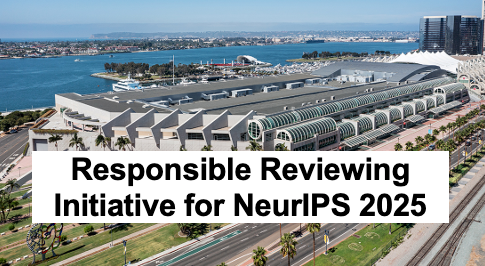[⚠️ Heads‑Up] NeurIPS 2025 Responsible‑Reviewing Rules Go Live—Two Hard Measures, That Decide Whether You’ll See Your Reviews and Whether Your Paper Gets Accepted
-

Tired of late or half‑baked reviews?
NeurIPS 2025 is done relying on goodwill—authors and reviewers are now locked together by design. To protect review quality and timeliness, the Program Chairs just unveiled the Responsible Reviewing Initiative with two concrete, enforceable rules. ️ The Two New Rules
️ The Two New RulesMechanism When It Triggers What Happens to You 1 Reviews Withholding Mechanism (review‑for‑review reciprocity) You are both an author and a reviewer but miss your review deadline All authors on your paper lose access to their reviews until you finish your assignments (latest ≈ 2 days before rebuttal closes). Severe delays can cost up to 5 days of rebuttal time 2 Desk Rejection Sanction (low‑quality review → own paper rejected) You submit a placeholder or low‑effort review—even if on time AC/SAC flag it → PC & D&B Chairs verify → your own submission can be desk‑rejected during meta‑review, skipping rebuttal entirely  What this means for authors
What this means for authors- Poor or late reviewing now hits your own paper first.
- Choose recommended reviewers wisely; if they slack, you’re collateral damage.
- Fairer, faster feedback - NeurIPS expects a higher baseline of review quality across the board.
Remind your co‑authors: before submitting to NeurIPS 2025, be ready to be a responsible reviewer!
Source: “Responsible Reviewing Initiative for NeurIPS 2025”.
The two measures—Reviews Withholding Mechanism and Desk Rejection Sanction—are explicitly stated in the official announcement. -
As reviewers, I hope we can all do our best this year. As an author, I've noticed that there are some PhD students serving as Area Chairs, and I don't think they are qualified. Thus, we should all be mentally prepared for the worst at NeurIPS 2025.
-
@Joserffrey Totally agree. It’s concerning to see PhD students as Area Chairs — ACs need experience to guide the review process, and without it, the system can suffer. I’m all for young researchers contributing, but it can be risky to give them such roles at a top-tier venue like NeurIPS, if without proper training.
-
@Joserffrey Totally agree. It’s concerning to see PhD students as Area Chairs — ACs need experience to guide the review process, and without it, the system can suffer. I’m all for young researchers contributing, but it can be risky to give them such roles at a top-tier venue like NeurIPS, if without proper training.
@Joanne Yes, I think you're exactly correct -- experience matters. I've seen people on social media saying that "some PhD students are very talented nowadays". But no matter how talented they are, they still lack experience. The most important thing for an AC is to make decisions/recommendations about submissions based on their experience, even when the reviews are "noisy". I don't think PhD students can do this well, even if they are exceptionally talented.
But for now, it seems that we can't avoid this, so we just have to be mentally prepared for it. Things may get worse.
